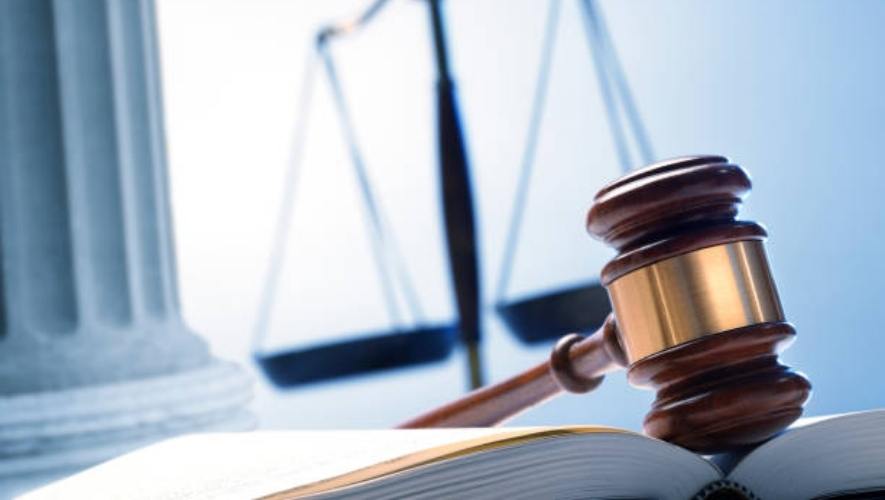UAV Laws across the world—do you know what they are? Below is a list of drone laws from around the Jersey. These are laws that must be followed in order to fly in that particular jurisdiction. While most of us here don’t live in these areas, it’s important to know whether or not your particular drone is legal to fly.
Make sure you get permission from landowners before flying over their private property. If you don’t, you could be charged with trespassing or harassment. Don’t fly over military facilities without approval from the governing body of that facility. You could be subject to arrest if caught doing so illegally.
So, you want to fly a drone in New Jersey. Great. You’ve come to the right place. Welcome to a useful guide on flying drones in the New Jersey area. We’ll cover what you need to fly a drone, some local laws, and give advice on certain do’s and don’ts.
Drone Laws Jersey

Drones Cannot Fly Over People
Drones are not to be flown over people—it’s a safety issue. Airplanes have always been forbidden from flying over densely populated areas, and drones pose the same risks.
If your drone crashes into someone on the ground or flies into them, it can cause injury. This is why you must keep your drone at least 30 feet away from any person while it’s in flight.
Drones Cannot Be Over 400 Feet
In New Jersey, you can fly a drone if it weighs less than 55 pounds and does not fly higher than 400 feet above the ground.
You must remain within sight of your drone at all times, which means staying between 100 feet and 400 feet away from any person or structure that is not under your control and not interfering with manned aircraft operations in navigable airspace.
Drone pilots should also keep their drones within 500 meters from themselves as well as other people when flying outside an enclosed area such as a stadium or building interior.
Drones Cannot Land In A Park
If a park is defined as a place that is open to the public, then drones cannot land in parks. If a drone lands in a park, it is technically trespassing and considered an illegal flight.
The only exception to this rule would be if you are authorized by law enforcement officials and have obtained permission from the parks department of your local government.
In order for this exception to apply, you must have prior approval from your local government agency before attempting to fly your drone in their park or other outdoor location with outdoor recreation facilities such as sports fields or playgrounds.
Drone pilots must also adhere to other laws regarding airspace and aircraft usage restrictions within certain areas designated by their state governments:
Drones Cannot Fly At Night
The FAA prohibits drones from flying at night, because it is inherently dangerous to fly in the dark. There are many factors that contribute to night-time flying being a bad idea:
- Drones must be visible at all times. Flying through the air with a bright orange glow or blinking lights can help ensure that your drone does not collide with another aircraft or land on someone’s head.
- Drones can be confused for birds at night; when there are no other objects around to provide contrast, it becomes more difficult for others to see what you’re flying and where you want them to go.
- The lack of light makes it more difficult for you as well as others around your drone because they will have less visibility when operating their own devices or vehicles and may result in accidents happening due to poor visibility conditions being present during flight time periods (day/night).
What Are Drone Laws In New Jersey?
In short, the Federal Aviation Administration (FAA) prohibits drones from flying over 400 feet, which is the ceiling of operation for most recreational drones.
In addition to this federal law, you should be aware of New Jersey’s drone laws. There are specific rules that govern drone use here:
- State law prohibits anyone without a valid pilot’s license or air traffic control authorization from operating a personal unmanned aircraft system in any airspace above 400 feet above ground level (AGL).
- Operators must keep their drones under 400 feet AGL while flying within five miles of an airport; pilots also need to notify air traffic control if they plan on flying within 3 nautical miles of an airport.
- It is illegal to fly a model aircraft over any residential area at altitudes higher than 101 feet above ground level (AGL). This means your quadcopter can only be flown indoors at home!
How To Register Drones In Jersey

How Do You Register A Drone In Jersey
It is important for you to register your drone in Jersey. You can do so by using either the official website or the official app.
First, visit this page on the official website: https://www.gov.je/
This will open up a PDF file with information about how to go about registering your drone in Jersey. The steps are as follows:
- Take a photo of yourself holding your driver’s license or passport next to your face (with no hat or sunglasses on).
- This must be taken against a plain white background and should be uploaded separately from any other photos when submitting the form online;
- Fill out all fields on form correctly (name, address, date of birth);
- Choose whether or not you wish for your location data (GPS info) to be shared with law enforcement agencies;
How Much Does It Cost To Register A Drone In Jersey
You’ll need to pay a registration fee of £9.99 (about $14 USD) for your drone.
This covers the cost of registration and a unique number for your drone. You’ll only need to pay this fee once, there are no annual fees or renewals required.
What Is Required To Register Your Drone In Jersey
In order to register your drone in New Jersey, you must be over 18 years of age. You’ll also need the ability to understand and follow the rules.
If you have a drone that weighs more than 55 pounds, it needs to be registered with the FAA instead.
In addition, if you’re planning on flying within 5 miles of an airport or heliport, check for temporary flight restrictions (TFRs) first—those are areas where drones are prohibited at certain times due to safety concerns and/or potential hazards like aircraft taking off or landing there.
Fill out a form online, attach a photo of your drone’s serial number (if applicable), pay $5 per year (it’s free until January 13th), print out some copies of everything that looks official-looking so they can keep records at their offices as well as mail one copy back within 30 days after registering with them.
So they know someone took care of this responsibly enough not just throw away everything later down road when we get sick again from eating too much bad food from restaurant kitchens which had bugs stuck inside them
Here Are Some Helpful Tips
- Registering your drone in New Jersey is easy, and it’s free.
- You can register your drone up to five days before you fly it for the first time. If you want to fly your drone again after that, you’ll need to re-register it before each flight.
- If you’re flying a drone outdoors or indoors at an event (like a wedding), then all you need is a single registration number. But if you’re using the same aircraft for both commercial and noncommercial purposes
- (for example, if someone pays him or herself $100 per hour to shoot a video with his or her own camera attached), then he or she will have two separate registrations: one for personal use and another for commercial use!
Are Drones Allowed In Jersey
No Person Shall Operate An Uas In Such A Manner
No person shall operate an unmanned aircraft system (UAS) in such a manner as to cause the UAS to come within 200 feet of a structure or building.
The operator of a UAS must have successfully completed an aeronautical knowledge test and received a remote pilot certificate with a small UAS rating issued by the FAA, unless already issued such certification under part 61 of Title 14, Code of Federal Regulations (14 CFR).
In addition, if operating over densely populated areas or near emergency response efforts, the operator must also possess either:
- A current National Transportation Safety Board-certificated airman medical certificate; or
- A valid driver’s license issued by their state of residence
No Person Shall Operate An Unmanned Aircraft System
As with all flying vehicles, it is the responsibility of the operator to operate their UAS in a way that does not endanger anyone else.
If you operate your drone in a careless or reckless manner so as to endanger the life or property of another person, you can be held liable for any damages that occur as a result.
It’s important to remember that there are limitations on how far your drone flies and how high it goes—these are laws that have been put into place because they protect people from injury or damage caused by flying objects.
When you’re operating your UAS, be aware of what’s going on around you so that nothing goes wrong!
No Person Shall Operate An (uas) Over, Through, Or Within 500 Feet Of Any Event
As of January 1, 2019, NJ has enacted a law that prohibits drone operators from flying within 500 feet of any event with 1,000 people or more. The law also requires written permission from the event sponsor and owner(s) or operator(s) of any property containing such event.
If you have questions about this law or would like to report a violation, contact the New Jersey Federal Aviation Administration at [email protected]
No Person Shall Knowingly Conduct A Search And Rescue Operation
Use of drones for search and rescue operations is prohibited if the drone is within 5 miles of an airport.
The law states that you must stay below 400 feet while flying a drone. You must also not operate the drone anywhere near people or buildings, and you cannot fly it over groups of people.
Frequently Asked Question (drone Laws Jersey)
What Are The Requirements For Flying My Drone In Jersey?
In order for you to fly your drone, you must have a valid drone operator certificate. You can get this by taking a training course or passing an exam. If you’ve already got your pilot license, then you can just take the test.
To find out more about the laws for flying drones in Jersey and what documents you need, visit the Federal Aviation Administration’s website: https://www.faa.gov/uas/faqs/
How High Should I Fly My Drone?
- 400 feet is the maximum height for flying a drone.
- You must not fly your drone more than 400 feet above any structure, person, or vehicle.
- If you’re flying your drone less than 400 feet from the ground, it’s important that you’re able to see it at all times.
Can I Fly My Drone Over People, Cars Or Animals?
No. It is illegal to operate any unmanned aircraft in a way that interferes with or disrupts the activities of other people or vehicles on the ground.
- If you are flying your quadcopter above any groups of people, you must keep it at least 25 meters away from them.
- You cannot fly over roadways or highways, and if there is a vehicle below your drone’s flight path then you must maintain at least 23 meters of vertical separation between them (i.e., do not let your drone get closer than 23 meters to an airplane).
- Finally, you are required by law to stay at least 50 meters away from any stadium or sports field where games are occurring during its hours of operation (this includes football stadiums).
Do I Need To Have A Qualification/training To Operate A Drone?
Yes, you need a qualification to fly your drone in Jersey. As the operator of any aircraft or drone, it is your responsibility to know the law and stay within its boundaries. To obtain a qualification you can do so via the Civil Aviation Authority (CAA) website.
Conclusion
To fly drone, you must register it with the CAA. You cannot fly within five miles of airport without permission from local air traffic control. You cannot fly near people who do not give you permission to do so. You cannot fly at night or when poor visibility.
If you are a resident of New Jersey, it’s worth it to check out the laws regarding drone flying and usage. There are certainly some new laws regulating unmanned flying devices that you should be familiar with to avoid hefty fines by your local police.
I hope you’ll appreciate my best efforts in keeping the tone of this blog post friendly, humorous, and maybe even a little corny. My overall goal is to provide useful information to my readers (congratulations for making it this far) about the drone laws in NJ.

![Haiti drone laws [March 2023] [Rules & How to Register]](https://discoveryoftech.com/wp-content/uploads/2022/08/drones-96-768x434.jpg)

![Drone rules Mumbai [March 2023] [Rules & How to Register]](https://discoveryoftech.com/wp-content/uploads/2022/05/drone-56-768x434.jpg)
![Drone Laws Morocco [Updated] [Rules & How to Register]](https://discoveryoftech.com/wp-content/uploads/2022/05/drone-77-768x434.jpg)
![Drone Laws Montenegro [March 2023] [Rules & How to Register]](https://discoveryoftech.com/wp-content/uploads/2022/05/drone-96-768x434.jpg)
![Drone laws Fiji [March 2023] [Rules and Registering]](https://discoveryoftech.com/wp-content/uploads/2022/08/drone-1-768x434.jpg)